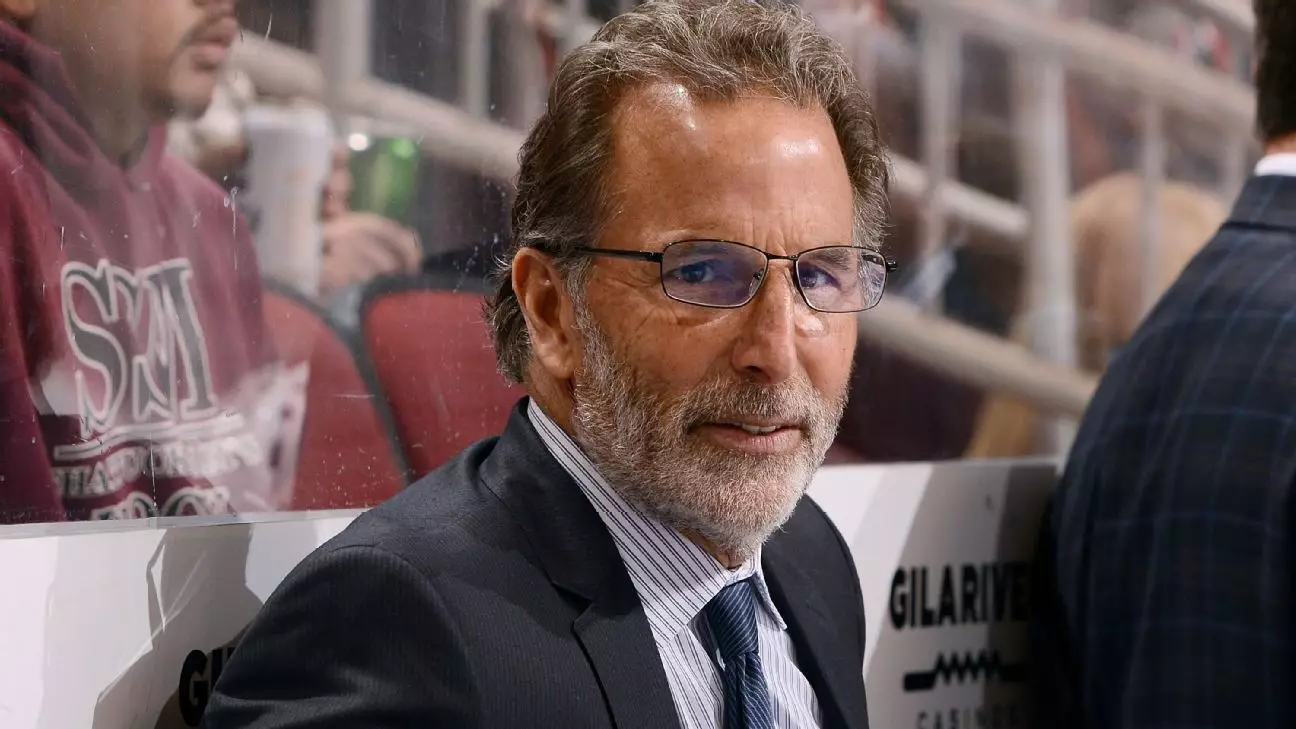The Philadelphia Flyers have recently made a seismic shift in their coaching staff that has reverberated throughout the NHL. General Manager Daniel Briere announced the termination of head coach John Tortorella, citing differences in philosophy and vision for the team’s future. This decision exemplifies the complex nature of sports management and the delicate balance of collaboration and authority required in team dynamics. Acknowledging Tortorella’s multifaceted personality, Briere describes him as a challenging but enriching force, emphasizing that the coach’s insights were valued yet ultimately led to diverging pathways. This phrase echoes throughout professional sports: need for alignment between management and coaching staff.
Assessing the Coaching Tenure
Tortorella, who took the helm of the Flyers in 2022, faced an uphill battle from day one due to a combination of high expectations and a challenging roster. His record—97 wins, 107 losses, and 33 overtime losses—paints a picture of a coach who struggled amidst the chaos of team reconstruction and performance inconsistencies. Despite his undeniable prowess at developing young talent, the Flyers’ failure to qualify for the playoffs in any of Tortorella’s three seasons ultimately sealed his fate. The recent loss to the Toronto Maple Leafs, described as a “crushing defeat,” served as a catalyst leading to his dismissal. Briere’s acknowledgment of the cumulative impact of recent losses—particularly the team’s dismal performance after aggressive trading decisions—illustrates the precarious nature of team momentum.
A Shift in Philosophical Alignment
The crux of Briere’s decision seems to hinge not only on Tortorella’s coaching effectiveness but also on an ideological mismatch. After an overwhelming loss, Tortorella openly expressed his reluctance to adapt to the conditions of a struggling season, suggesting a disconnect between his coaching style and the team’s evolving dynamics. Such statements can reverberate throughout an organization, undermining confidence and cohesion. Briere’s urgency for change also reflects broader organizational aspirations: the Flyers are in the midst of a rebuild, focused on nurturing younger talent while striving for competitive returns. It is imperative for a coach to embrace the challenges that come with growing pains rather than resist them.
The Realities of Rebuilding
As the Flyers navigate through this rebuilding phase, the question of how best to cultivate a future-ready roster looms large. Recently orchestrated trades involving players like Scott Laughton and Joel Farabee are indicative of a long-term strategy aimed at reclaiming competitive stature in the NHL. However, these decisions have practical implications on the coaching staff, as they require an adjustment in strategies and methodologies. Briere’s candid acknowledgment of the pressures faced by Tortorella during this time evokes sympathy, noting that the coach indeed understood the necessity of tough trades, even as they complicated on-ice chemistry and performance. This realism about the challenges of reconstructing a team cannot be underestimated.
Looking Forward: Hope and Potential
In the wake of Tortorella’s departure, associate coach Brad Shaw steps into an interim role, bringing a fresh yet familiar perspective to the locker room. The matter of finding a permanent replacement looms, yet Briere has not rushed to formulate a list of candidates. This thoughtful approach indicates a desire to provide the incoming coach with a clean slate and a team ready to embrace a new direction. The Flyers’ recent victory over Montreal appears to be a tentative step towards stabilizing their season, albeit amidst an ongoing struggle. Flyers fans are left wondering who will be chosen to steer their team back to respectability while developing promising talents like Matvei Michkov, who has already begun to shine under challenging circumstances.
A Culture of Tough Love
One cannot discuss the influence of Tortorella without recognizing his controversial style of “tough love.” This coaching approach often created friction but also facilitated growth among younger players, who were pushed to develop resilience and competitive fire. Briere has acknowledged this dynamic, celebrating Tortorella’s contributions to the maturation of prospects. While the upcoming coach must learn from this duality—encouraging growth while fostering a nurturing environment—there remains a crucial need for the Flyers to form a coherent strategy that balances accountability with support. As they venture into this new chapter, the Philadelphia Flyers embody the struggle and promise that defines professional sports, aiming not only for short-term wins but for long-lasting transformation.

